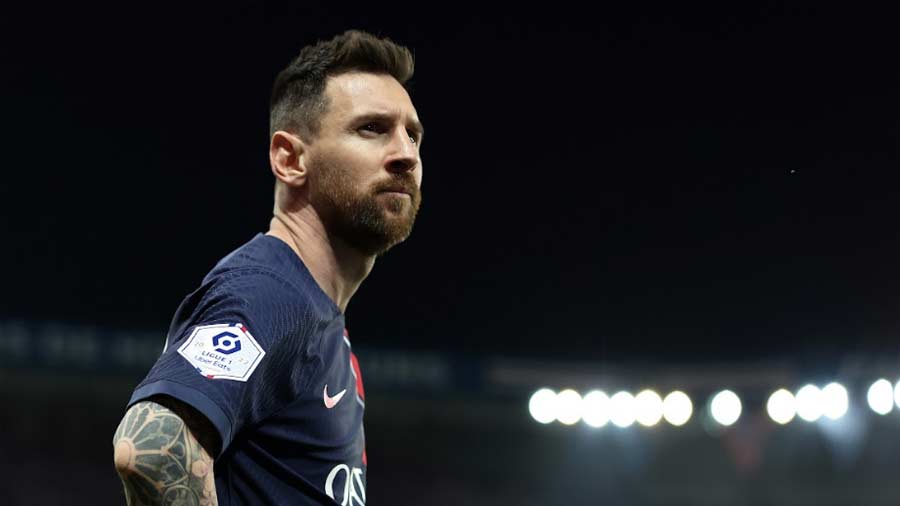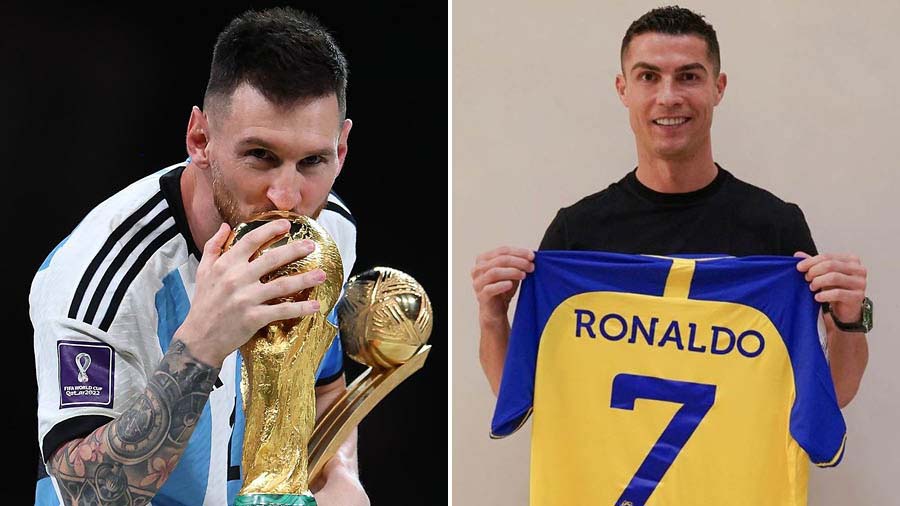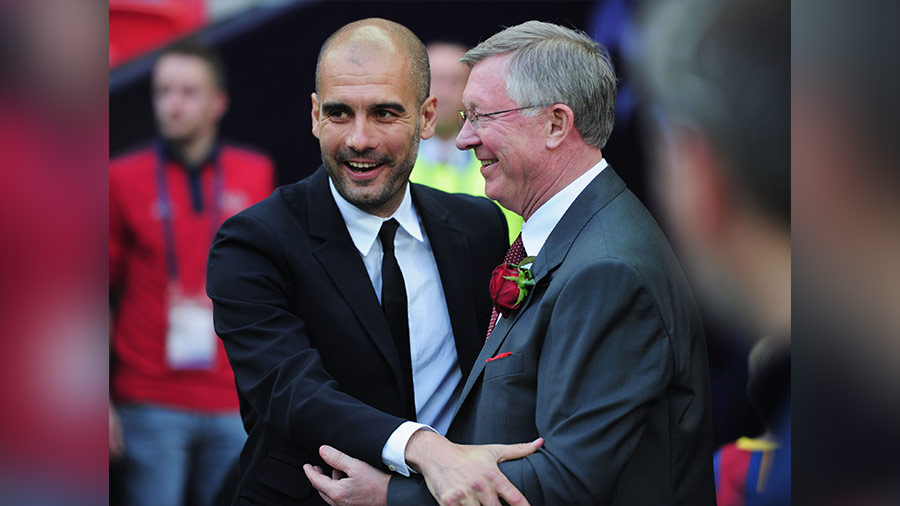Everything is never enough. As human beings, we are wired to want more. For the best part of two decades, Lionel Messi gave us everything a supreme athlete can, from countless moments of sporting greatness to frequent reminders of how generational talent combined with fierce determination can transcend sport itself. And now, having broken every major individual and collective record there is to break in European football, Messi has decided to move on. In what still feels like a shock, but not much of a surprise, Messi has opted to play for Inter Miami, a club in the Eastern Conference of the US’s Major League Soccer (MLS). In doing so, Messi has ruled out the most romantic of returns to Barcelona, sending an overwhelming section of football fans into agony.
With the world still trying to make sense of his choice, My Kolkata breaks down why Messi did what he did, and why moving to Miami might convince the head but cannot help breaking the heart.
Why Messi chose Miami over Barcelona
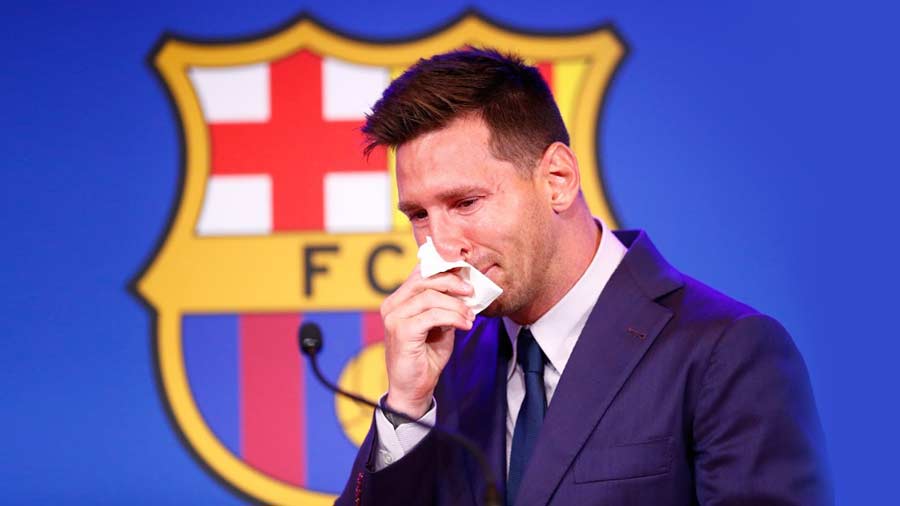
Messi did not want a repeat of the calamitous situation that forced him to quit Barcelona in August 2021 Getty Images
On January 28, 2018, Messi curled home a sublime free kick at the Camp Nou to give Barcelona a late 2-1 victory against Alaves in La Liga. A day later, Inter Miami, partly owned by David Beckham, was born. Miami are currently bottom of the Eastern Conference in the MLS, having sacked manager Phil Neville last week, and do not possess a single player in their squad that even the most earnest of Messi fans (and perhaps Messi himself) are likely to have heard of. So, why exactly is Messi making the ultimate footballing downgrade just six months after winning the World Cup in Qatar and being the frontrunner for a record-extending eighth Ballon d’Or in August?
“Not being able to join Barcelona, it’s time to go to MLS and live football from another perspective, enjoying my daily life,” said Messi in a tell-all interview to Barcelona-based publications Sport and Mundo Deportivo on Monday night. From Messi’s point of view, he had a “mixed” two years at Paris Saint-Germain (PSG) and was desperate to return to Barcelona following a farcical exit in the summer of 2021, when the club failed to register him despite promising to the contrary for months.
Stung by what had happened two years ago, Messi did not want to wait for Barcelona to sort out their financial mess and risk deja vu. Knowing fully well that the Catalan giants would have to sell players and even enforce pay cuts among the staff, Messi “didn’t want to be responsible for all that”. Barcelona, on the other hand, wished Messi good luck in a tone-deaf statement, outlining their position with regard to a player who did not even receive a formal offer from the club of his life: “President [Joan] Laporta understood and respected Messi’s decision to compete in a league (MLS) with fewer demands, further away from the spotlight and the pressure he has been subject to in recent years.” For Messi (and his fans), who prioritised Barcelona for weeks (if not months) over Miami and a bumper billion-dollar deal from Al Hilal in Saudi Arabia, these words added insult to injury, with Laporta and Co. meting out a cheap shot in order to control the narrative.
What will life in Miami look like for Messi?
Turning 36 later this month, Messi, the footballer, has nothing left to prove. Conversely, Messi, the potential entrepreneur, has a lot to gain from his move to Vice City. For starters, Messi’s package at Miami is supposed to include perks from deals MLS has with Apple TV+ and Adidas. Second, Messi, who already has a house in Miami and has vacationed there several times in the past, will have unprecedented clout in a country where football fandom is peaking ahead of the US co-hosting the 2026 World Cup. Like David Beckham’s switch to MLS in 2007, Messi’s transfer comes with a clause to purchase an MLS franchise at some point, giving Messi a direct pathway into business post his playing days. To add to these considerable sweeteners, Messi’s family is comfortable in Miami, at least far more than they were in Paris or would possibly have been in Saudi Arabia, where Cristiano Ronaldo and Karim Benzema are part of an increasingly glittering array of superstars.
“Messi doesn’t need to win any more trophies. So, maybe, the ambition is over and the first priority is family. In many ways, Miami is the most South American of cities in the US, with a great atmosphere, a considerable number of Spanish speakers, beaches and more. Unlike Barcelona and Paris, Miami will give Messi an opportunity to live a relatively quiet life and still enjoy his football in a peaceful context, without having the pressure to win the UEFA Champions League,” explained Luciano Wernicke, a senior Argentine sports journalist based out of Buenos Aires, speaking to My Kolkata minutes after Messi had confirmed that he was going to Miami. What will give Messi more of an incentive in Miami are indications that the club wants to build a team around him. Gerardo Martino, who managed Messi earlier at Barcelona and then Argentina, is the favourite to be the next Miami coach, with the franchise in talks to bring Sergio Busquets, Luis Suarez, Jordi Alba, Angel Di Maria and Leandro Paredes, all former teammates and friends of Messi, for a reunion in Florida.
And yet, for those who have become accustomed to savouring Messi’s brilliance on a weekly basis in Europe’s elite competitions, there lingers a sense of what might have been. A sense that Messi still owes us something — a fifth Champions League, more historic statistics, and the right to insist that he remains the best player in the world. None of these demands will be fulfilled in MLS, which ranks 10 or below among the most competitive leagues in the world, according to various databases. Above all, for Messi fanatics like me, it feels like the end of an era. We will still abandon our sleep (with some tweaks to the old schedule) to watch Messi in action, still rummage the internet for good quality streamers (MLS can be accessed with Apple TV+, but the league has no broadcaster in India right now), and still smile when Messi plays football like he is having a kick in his backyard. But with the stakes being so much lower, every victory will feel like an afterthought, every defeat an irrelevance. Messi will still be Messi, but his magic will never be the same.
Leaving behind an unparalleled legacy in Europe
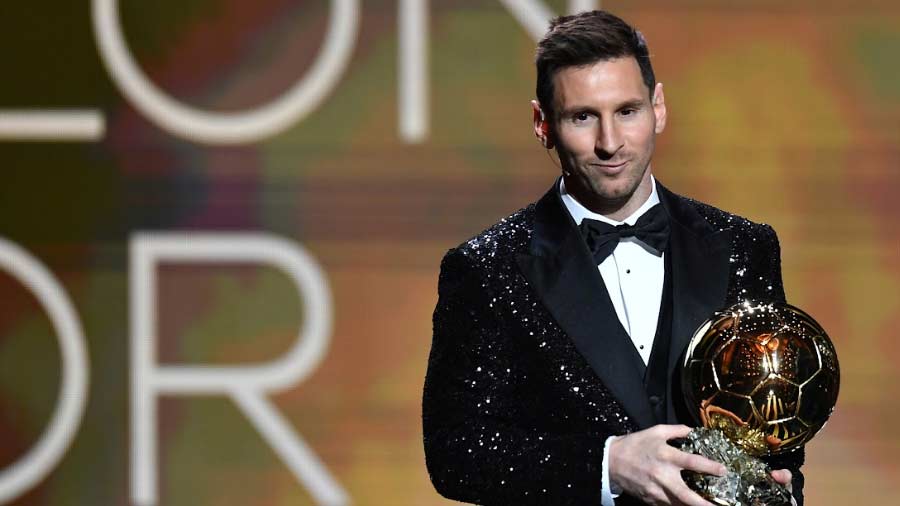
Messi leaves European football with the most goals and assists in the continent’s top five leagues, as well as the most Ballons d’Or Getty Images
Does it really matter if a Leonardo da Vinci masterpiece hangs in Pittsburgh and not in Paris? If a Martin Scorsese blockbuster releases on Voot instead of the theatres? If Marco Pierre White comes to cook indefinitely for a cafe in Bengaluru? Probably not. Genius retains its glow wherever it goes. With sport, however, setting matters almost as much as skill. A slam dunk from Michael Jordan in the NBA is not the same as the exact slam dunk in a charity match. A Roger Federer ace that skids along the grass at Wimbledon is not the same if replicated on astro turf in Wyoming. In the same vein, nothing that Messi does in MLS will quite match up to what he has done before. Embracing semi-retirement in the US, Messi’s off-field impact will definitely outstrip his on-field contributions for the first time in his stellar career. As more of a touchstone than top-scorer, Messi will look to redefine football (or “soccer”) in the US, following in the footsteps of Pele in the 1970s. On the side, he may also learn English (hopefully not with a South Coast accent), expand his palate (reduce drinking maté for one) and show up in a Hollywood flick or two.
The eternal optimist in me still hopes that Messi will come back for a cameo at Barcelona or some other European giant. After all, Beckham, Wayne Rooney, Zlatan Ibrahimovic and more have returned to European football for brief spells after going to the US. But, for now, Messi is US-bound, leaving behind an unparalleled legacy in Europe. The likes of Kylian Mbappe and Erling Haaland, now free to rule with no Messi (or Ronaldo) around, may equal or even eclipse many of Messi’s feats. But they will, in all likelihood, not be able to emulate the inevitability of Messi’s excellence. The idea that come every weekend Messi would do something that would make the jaw drop, the mind boggle and the heart thump. Something that would become instantly memorable. Something that would feel like everything.
